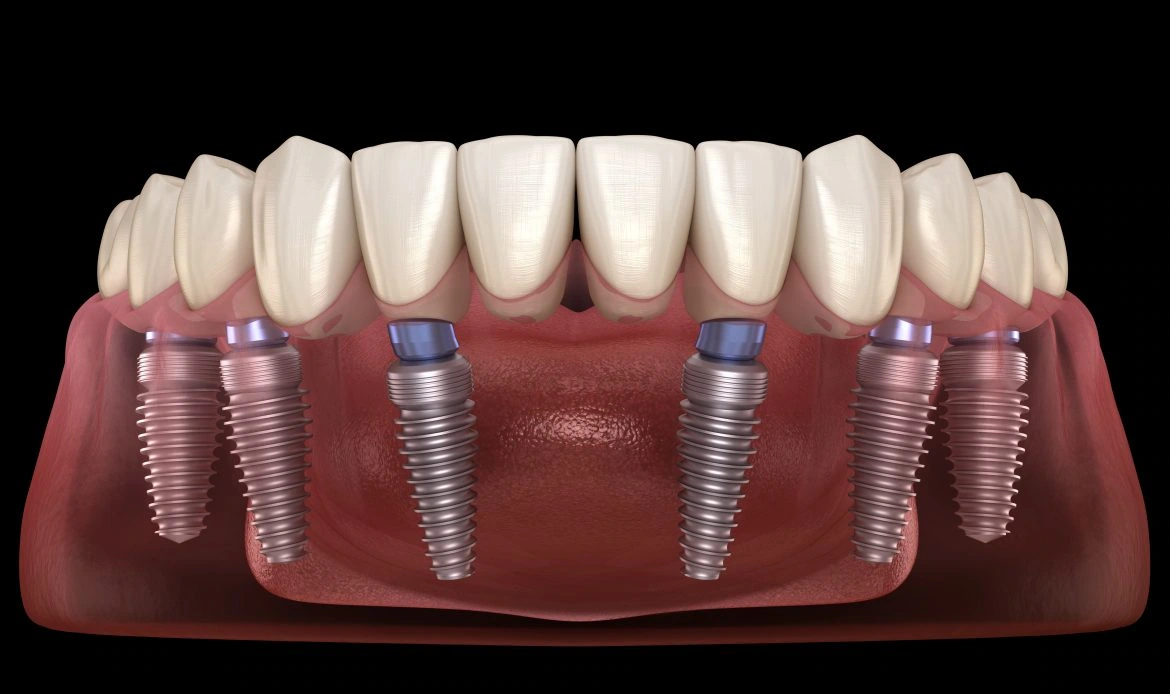Home
Events
Blogs
Groups
Pages
More
Dental implants have become one of the most successful and trusted treatments for replacing missing teeth. For anyone hearing about implants for the first time, the concept can feel technical or even intimidating. Yet, dental implants in dubai are designed to closely replicate natural teeth in their look, feel, and function, making them a preferred choice for millions of patients worldwide.
If you are just beginning your research, this guide breaks down everything you need to know—from what implants are to how the procedure works, the benefits they offer, and whether they may be right for you. With this clear beginner-friendly overview, you will be well-prepared to make informed decisions about your oral health.

What Exactly Are Dental Implants?
A dental implant is an artificial tooth root, usually made of titanium, that is surgically placed into the jawbone where a natural tooth once stood. Over time, the implant fuses with the bone in a process known as osseointegration. This integration creates a stable foundation for a crown, bridge, or denture to be attached.
A complete implant restoration consists of three main parts: the implant fixture placed in the bone, the abutment that connects the implant to the restoration, and the crown which serves as the visible replacement tooth. Together, these components create a restoration that functions much like a natural tooth.
Why Do People Choose Dental Implants?
Dental implants provide a range of benefits that make them stand out from other tooth replacement options. They look and feel natural, making them nearly indistinguishable from real teeth. Because they are anchored into the bone, they offer exceptional stability, allowing patients to eat, speak, and smile with complete confidence.
Implants also protect oral health by preventing bone loss, which naturally occurs when a tooth is missing. By stimulating the jawbone, implants help maintain facial structure and prevent the sunken appearance often associated with long-term tooth loss. These long-term benefits make implants one of the most comprehensive and effective restorations in modern dentistry.
Understanding the Implant Procedure
The implant process typically involves several stages, each crucial for long-term success. The first step is a consultation with a qualified dental professional. This appointment often includes a clinical exam, dental X-rays, and sometimes 3D imaging to assess the quality and density of the jawbone. The dentist evaluates the patient’s oral health, reviews medical history, and discusses potential risks or additional procedures needed.
If the jawbone is healthy and strong enough, implant placement can be scheduled. During the surgical procedure, the dentist makes a small incision in the gum and drills a precise opening in the bone to insert the implant. This stage is usually performed under local anesthesia, although sedation options may be available for anxious patients.
After the implant is placed, the healing phase begins. Osseointegration can take several months as the bone bonds firmly with the implant. During this time, patients may receive a temporary restoration so they can maintain their appearance and function. Once healing is complete, the abutment is placed on the implant, followed by the custom-made crown that completes the restoration.
How Long Does the Healing Process Take?
Healing times for dental implants vary depending on individual factors such as jawbone density, oral hygiene habits, and the patient’s overall health. Most patients experience minimal discomfort after the surgery, and any soreness usually subsides within a few days. However, the internal healing process takes more time.
Osseointegration typically ranges from three to six months. This period is critical because it allows the implant to become a permanent part of the jawbone, ensuring stability for the final restoration. While this waiting period may seem long, the long-term reliability of the implant is worth the time investment. In some cases, advanced techniques allow for quicker healing or even same-day implant restorations, but these depend on specific clinical conditions.
Who Is a Good Candidate for Dental Implants?
Most healthy adults with missing teeth are potential candidates for dental implants. However, there are certain factors the dentist will consider. Adequate jawbone density is essential for supporting the implant. If the bone has deteriorated, additional procedures such as bone grafting may be recommended to strengthen the area.
Healthy gums are also important, as untreated gum disease can interfere with the success of the implant. The patient’s medical history plays a role as well. Conditions such as uncontrolled diabetes or habits like smoking can impact healing and increase the risk of complications. While these do not automatically exclude someone from getting implants, they require careful evaluation and management.
Age is not necessarily a limitation. Many older adults receive dental implants successfully, as long as their oral and overall health allow for proper healing.
Are Dental Implants Painful?
One of the most common concerns among beginners is whether implants hurt. While implant surgery is a surgical procedure, the experience is typically far more comfortable than people expect. Local anesthesia ensures the patient feels no pain during placement. Afterward, mild soreness, swelling, or discomfort may occur, but these symptoms usually resolve quickly and can be managed with prescribed or over-the-counter medications.
Most patients report that the recovery is similar to having a tooth extracted. With proper post-operative care, healing is smooth and manageable.
Different Types of Implants You Should Know About
Implant dentistry offers various solutions to accommodate different clinical needs. The most common type is the endosteal implant, placed directly into the jawbone. This type offers the highest level of stability and is suitable for most patients.
Subperiosteal implants, placed under the gum but above the bone, are an alternative for patients who cannot undergo bone grafting. Mini implants, which are smaller in diameter, are sometimes used to stabilize dentures.
For patients missing multiple teeth or an entire arch, full-arch implant systems such as All-on-4 or All-on-6 provide an efficient alternative to individual implants. These systems use fewer implants to support a full set of replacement teeth, making them a popular choice for complete smile restorations.
How Long Do Dental Implants Last?
One of the most appealing features of dental implants is their longevity. When properly cared for, implants can last decades, and many patients enjoy them for a lifetime. This durability makes implants an excellent long-term investment in oral health.
The crown on top of the implant may eventually need replacement due to normal wear, but the implant itself is designed to remain secure and functional. Proper oral hygiene, regular dental check-ups, and healthy lifestyle habits significantly increase the lifespan of implants.
Maintenance and Care After Getting Implants
Caring for dental implants is similar to caring for natural teeth. Daily brushing and flossing, along with routine dental cleanings, help keep the surrounding gums and tissues healthy. Although implants cannot decay, gum disease can still affect the tissues around them, so maintaining good oral hygiene is essential.
Patients should avoid smoking, as it impairs healing and increases the risk of implant failure. It is also advisable to minimize habits such as teeth grinding or chewing on hard objects, which could damage the restoration.
Understanding Costs and Why Prices Vary
The cost of dental implants can vary based on factors such as the number of implants needed, the type of restoration, the location of the tooth, and whether additional procedures like bone grafting are required. While implants may cost more upfront than dentures or bridges, their long-term durability and health benefits often make them more cost-effective over time.
A detailed consultation provides clarity on treatment planning, timelines, and expected costs. Many dental clinics also offer financing plans to make implants more accessible.
Conclusion
Dental implants offer one of the most effective, long-lasting, and natural-feeling solutions for missing teeth. They are designed to restore not only your smile’s appearance but also its function, comfort, and long-term health. For beginners exploring this treatment, understanding how implants work, what the procedure involves, and who qualifies can make the process far less overwhelming.
With the right dentist, careful planning, and proper post-treatment care, dental implants provide a reliable and transformative solution that can last a lifetime. For anyone seeking a confident, healthy, and complete smile, implants are an option worth considering with full confidence.


